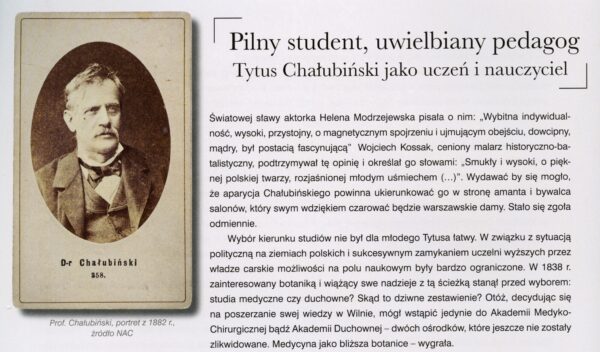
Szanowni Państwo zachęcamy do lektury ciekawego artykułu pani Kingi Warszawskiej pt: „Pilny student, uwielbiany pedagog. Tytus Chałubiński jako uczeń i nauczyciel” w czasopiśmie MDWUM nr 11/2019 str. 44-45.
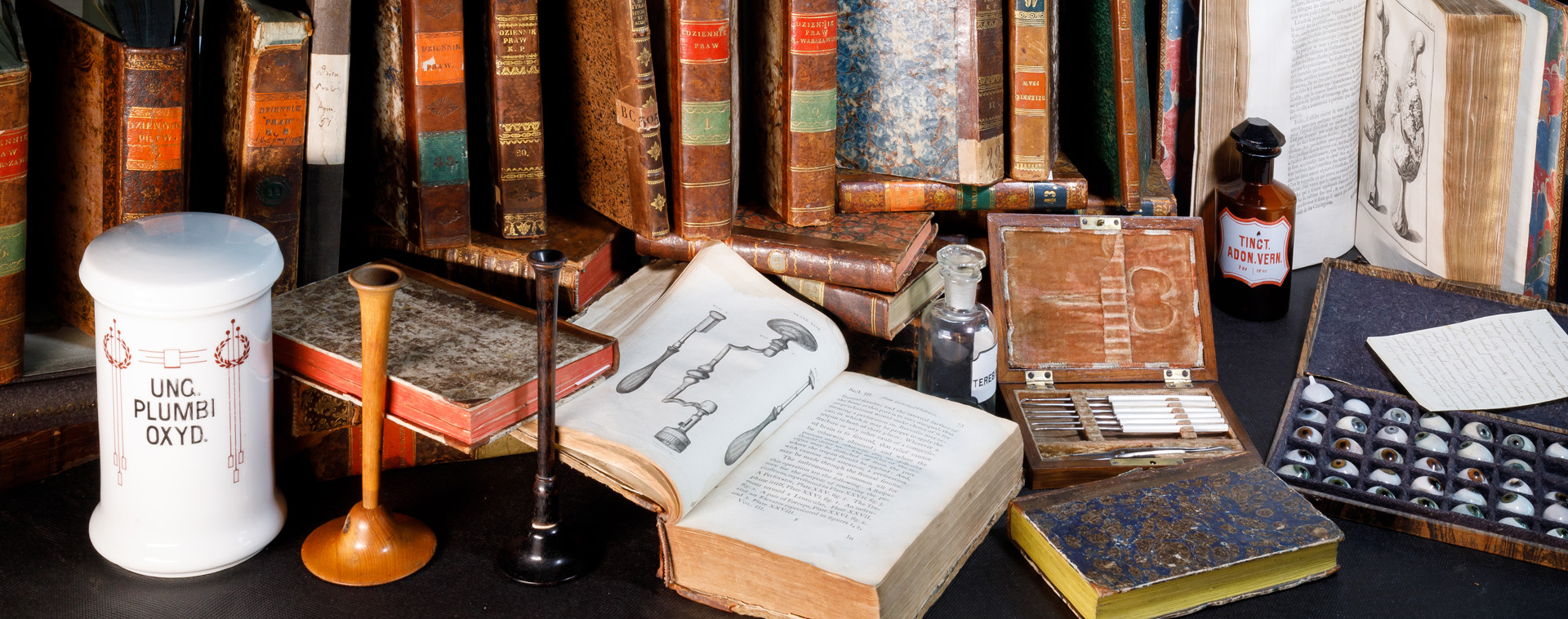
Warszawskiego Uniwersytetu Medycznego

Szanowni Państwo zachęcamy do lektury ciekawego artykułu pani Kingi Warszawskiej pt: „Pilny student, uwielbiany pedagog. Tytus Chałubiński jako uczeń i nauczyciel” w czasopiśmie MDWUM nr 11/2019 str. 44-45.
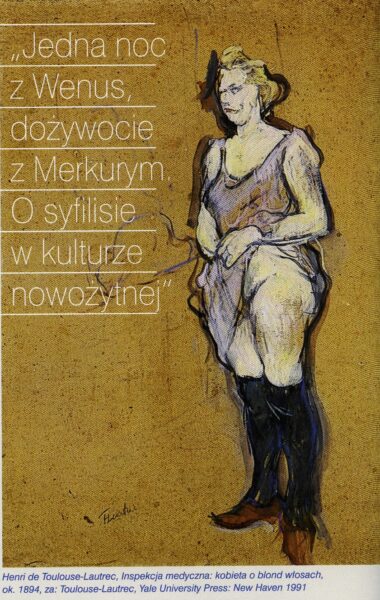
Szanowni Państwo zachęcamy do zapoznania się z interesującym artykułem dr. Adama Tyszkiewicza pt: „Jedna noc z Wenus, dożywocie z Merkurym. O syfilisie w kulturze nowożytnej” w czasopiśmie MDWUM nr 11/2019 str. 46-48.
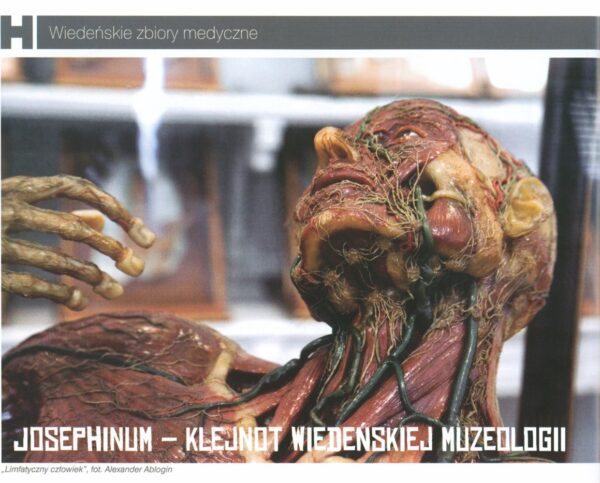
Szanowni Państwo zachęcamy do zapoznania się z interesującym artykułem dr. Adama Tyszkiewicza pt: „Josephinum – klejnot wiedeńskiej muzeologii” w czasopiśmie MDWUM nr 03/2019 str. 44-47.
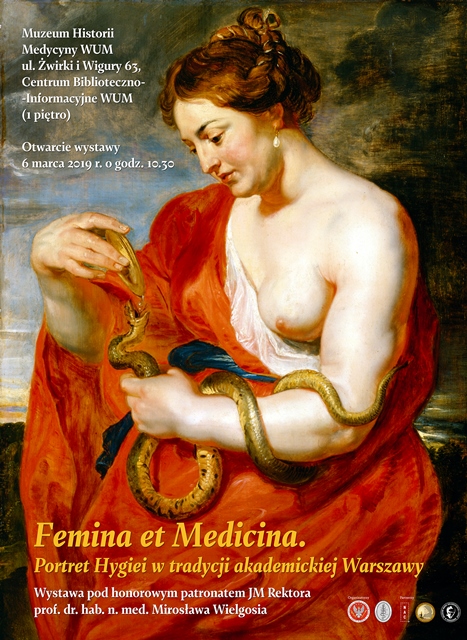
Szanowni Państwo zachęcamy do zapoznania się z interesującym artykułem na temat wystawy czasowej pt: „Femina et Medicina. Portret Hygiei w tradycji akademickiej Warszawy” w czasopiśmie MDWUM nr 02/2019 str. 40-43.
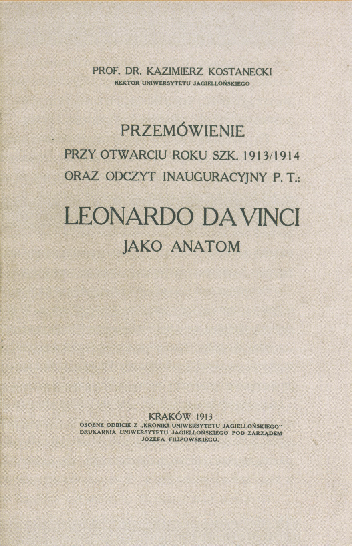
Szanowni Państwo zachęcamy do lektury artykułu pt: „Anatomia człowieka oczami Leonarda da Vinci” w czasopiśmie MDWUM nr 01/2019 str. 42-45.
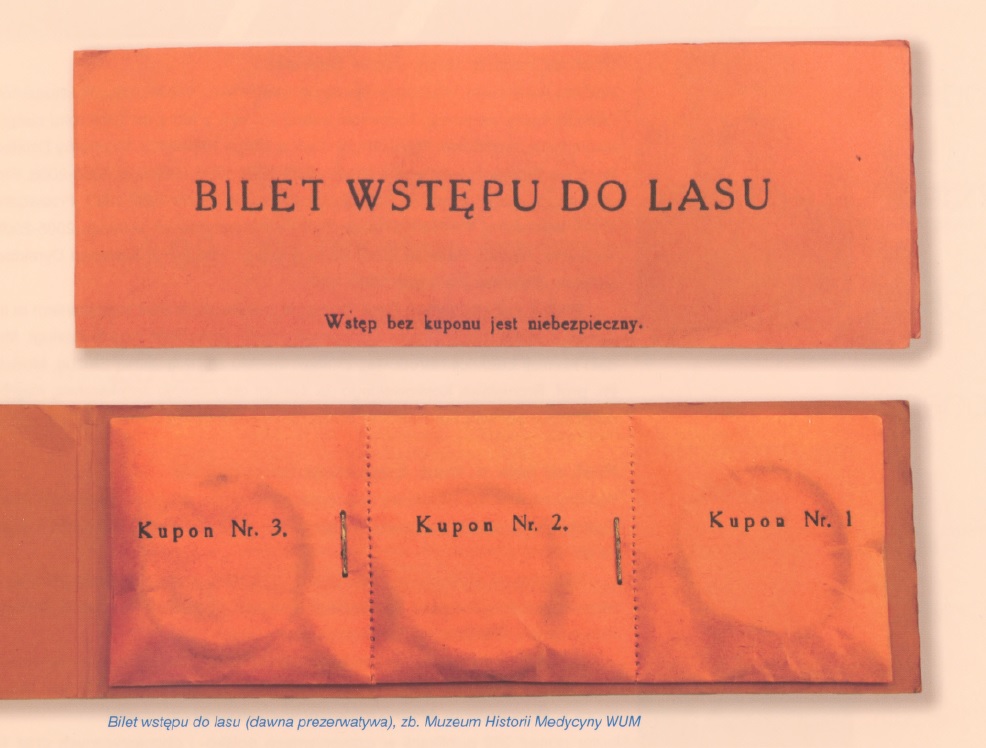
Szanowni Państwo zachęcamy do zapoznania się z interesującym artykułem dr. Adama Tyszkiewicza pt: „O życiu erotycznym warszawskich studentów na podstawie źródeł historycznych.” w czasopiśmie MDWUM nr 12/2018 str. 44-47.
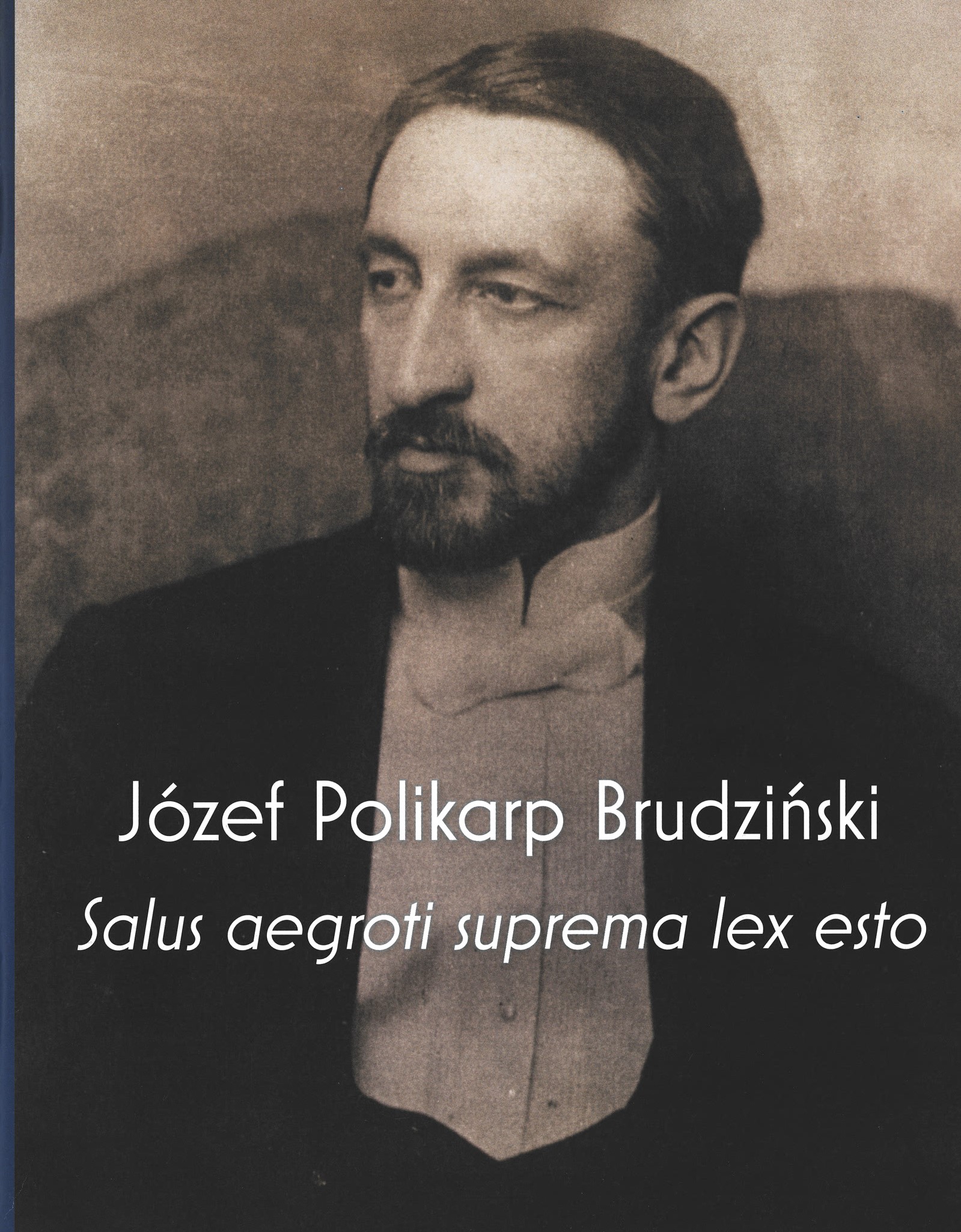
Szanowni Państwo,
z przyjemnością chcielibyśmy pochwalić się naszą najnowszą publikacją w języku angielskim dotyczącą wystawy „Józef Polikarp Brudziński Salus aegroti suprema lex esto”, której otwarcie miało miejsce w grudniu 2017 r.
Józef Polikarp Brudziński Salus aegroti suprema lex esto
Słowem wstępu:
And when all of us, both the teachers and students, and the entire university
community, envelop our reborn Alma Mater with care and love, it will remain
and flourish, and future generations will look on it with pride and repeat: The
rain came down, the streams rose, and the winds blew and beat against that
house; yet it did not fall, because it had its foundation on the rock. It was with
these words that Rector Józef Polikarp Brudziński ended his speech during
the inaugural celebration of the University of Warsaw on 15 November 1915.
Whereas I, on the hundredth anniversary of his death, would like to recall
a beautiful chapter in the history of both Polish education and medicine,
commemorating the life and academic achievements of the revived
University of Warsaw’s first rector—a world renowned neurologist, paediatrician and invaluable academic teacher, who was loved by his students.
It is a real honour to have had a predecessor who was such a celebrity, and
who was involved in so many spheres of activity: medical, academic, social
and political. It also provides me with strong motivation and the challenge to
discharge my duties with due care and diligence for the benefit of the whole
academic community, one hundred years after the reinstatement of the independent University of Warsaw and the appointment of the first rector in its history. Józef Polikarp Brudziński was the first in a series of illustrious and
great personages who, in turn, until 1950, were rectors of the University of
Warsaw, and later of the Medical Academy and of the Medical University of
Warsaw.
Józef Polikarp Brudziński was not only the first rector of the reborn University
of Warsaw, but he was also a physician. Later in the University of Warsaw’s
history—between 1915 and 1949—five of the seventeen rectors were also
medical doctors: Professor Jan Mazurkiewicz – a psychiatrist; Professor
Franciszek Krzyształowicz – a dermatologist; Professor Mieczysław
Michałowicz – a paediatrician; Professor Jerzy Modrakowski – a
pharmacologist and Professor Franciszek Czubalski – a physiologist.
I sincerely belief that 100 years after the death of Józef Polikarp Brudziński,
both current and future generations will look back with pride and gratitude at
the achievements he left to posterity, and will repeat: The rain came down, the
streams rose, and the winds blew and beat against that house; yet it did not fall, because it had its foundation on the rock.
I congratulate the Museum of the History of Medicine for preparing an
exhibition to commemorate the anniversary of the death of Rector Józef
Brudziński—the father of both the revived University of Warsaw and of the
Medical University of Warsaw.
Prof. dr hab. n. med. Mirosław Wielgoś
Rektor Warszawskiego Uniwersytetu Medycznego